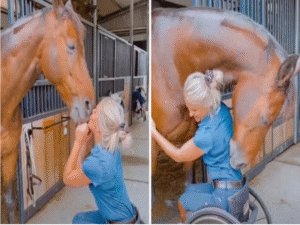“The Sound of Sirens”
It started with a scream. Not the kind that echoes through alleyways or shatters glass—but the kind that gets caught in your throat, trembling, unheard. She was 23, full of fire and fight, the kind of girl who laughed too loud and loved too hard. But that night, something broke.
The party had been loud, the music louder. She’d worn red—her armor, her warning. She danced like she was trying to forget something, or maybe remember it. No one noticed when she slipped out the back door. No one saw the way her hands trembled as she lit a cigarette she didn’t want. No one heard the footsteps behind her.
What happened next was fast. A blur of breath, a hand, a shove. A voice she didn’t recognize. A moment she’d replay in her mind a thousand times, each time wondering if she could’ve screamed louder, run faster, fought harder.
By the time the ambulance arrived, she was curled on the pavement, mascara streaked like war paint, her breath shallow, her voice gone. The EMTs moved quickly, professionally, but one of them—an older woman with kind eyes—took her hand and didn’t let go.
At the hospital, the fluorescent lights were too bright. The questions too sharp. “Do you remember what he looked like?” “Did he say anything?” “Are you hurt anywhere else?” She nodded. She shook her head. She didn’t know. Everything was a blur of white coats and whispered apologies.
They ran tests. They cleaned her wounds. They called her parents. She lay there, staring at the ceiling, counting the tiles like they were stars. She didn’t cry. Not yet. That would come later, in the quiet, when the adrenaline wore off and the silence became unbearable.
A detective came. He was kind, but clinical. “We’ll do everything we can,” he said. She nodded again. She didn’t believe him.
But then her best friend arrived, breathless and barefoot, having run from the party when she realized she hadn’t seen her in hours. She climbed into the hospital bed without asking, wrapped her arms around her, and whispered, “You’re safe now.”
And that’s when the tears came. Not because she was weak, but because she was strong enough to feel. To let it out. To begin.
The road ahead would be long. There would be therapy, and court dates, and nights when the shadows felt too loud. But there would also be mornings. Coffee. Laughter. Healing.
Because she was still here. And that mattered.



